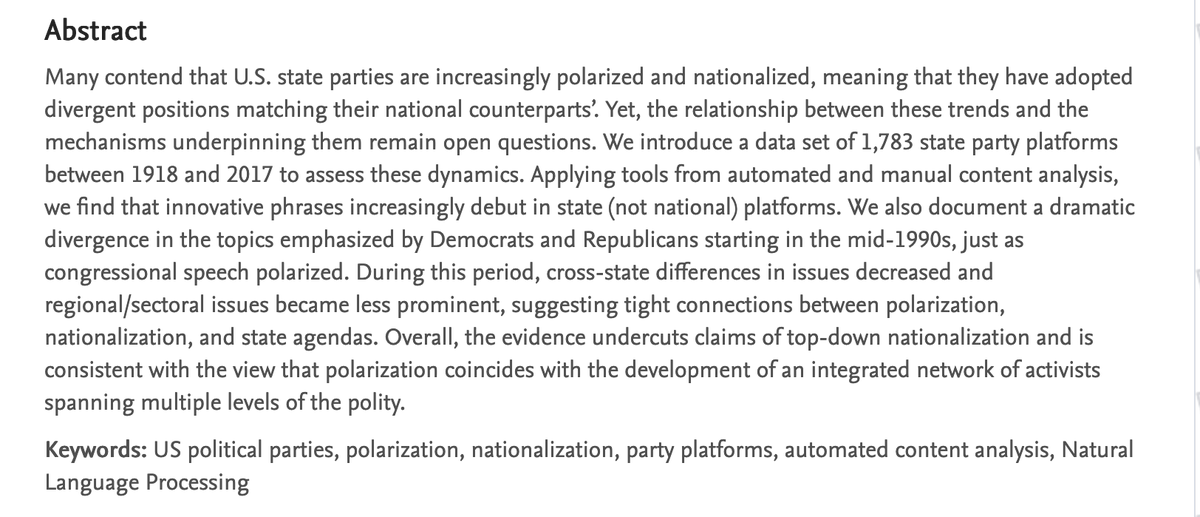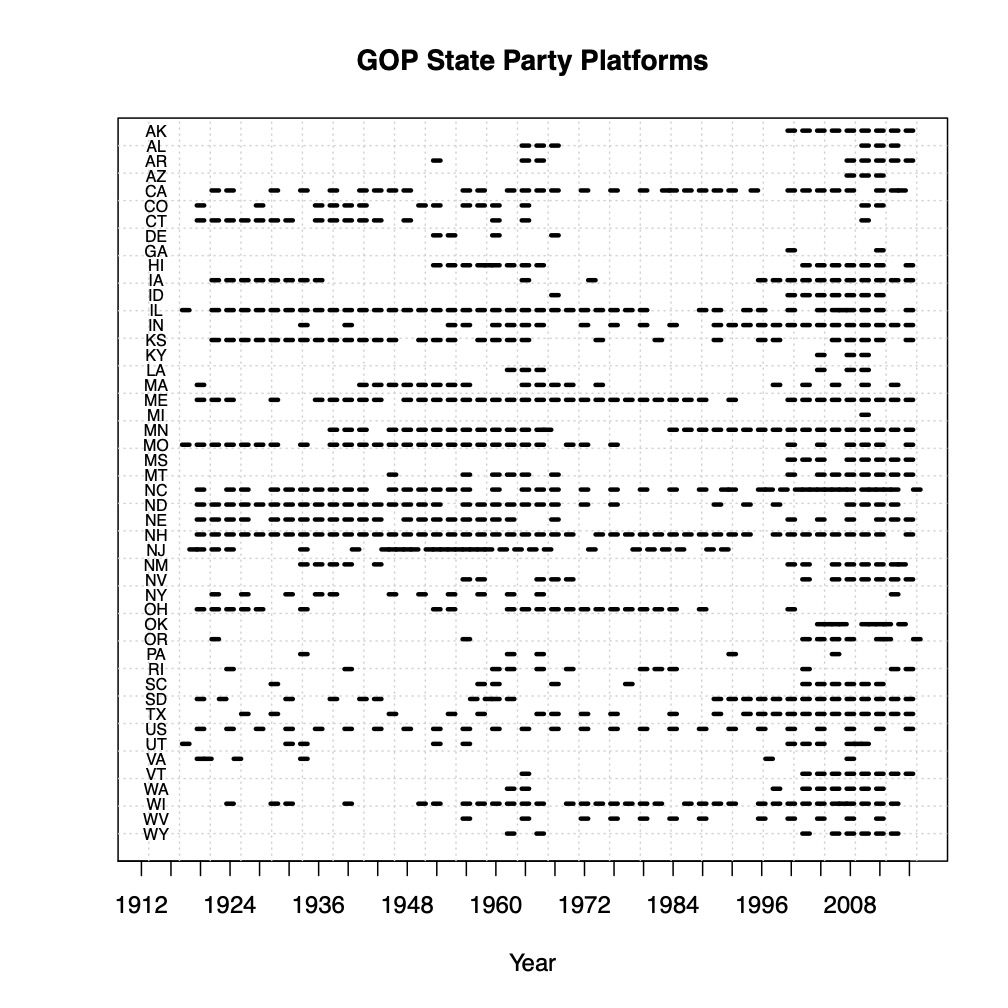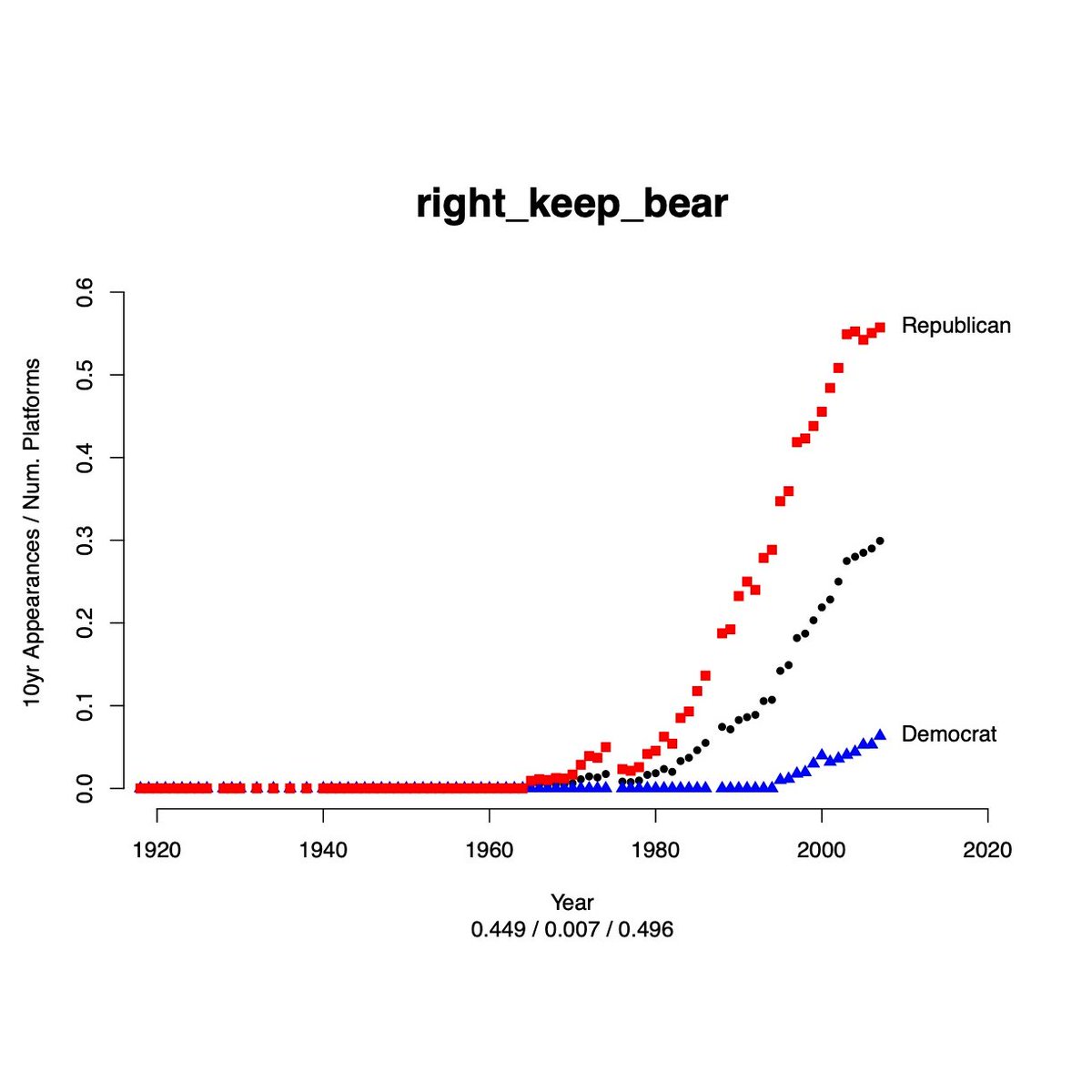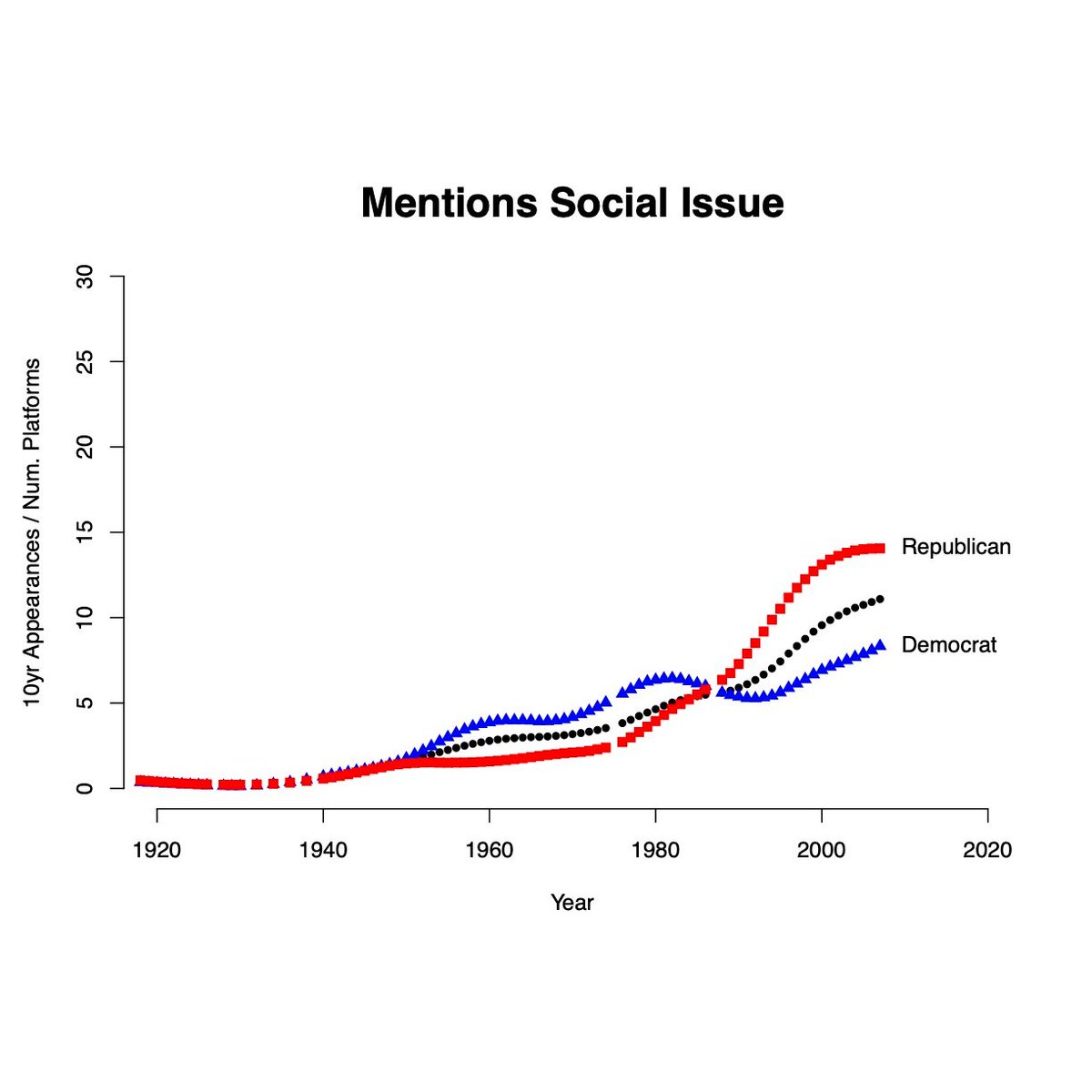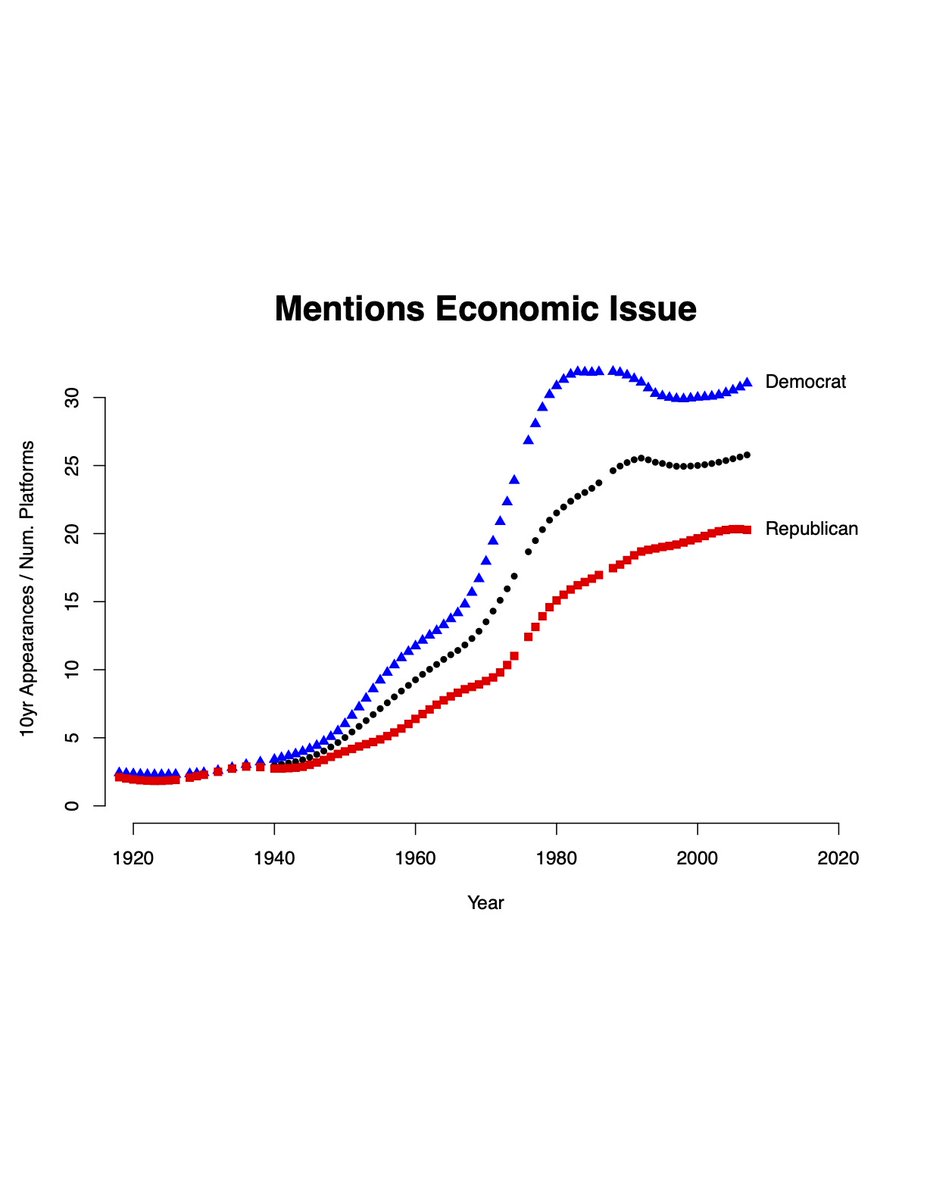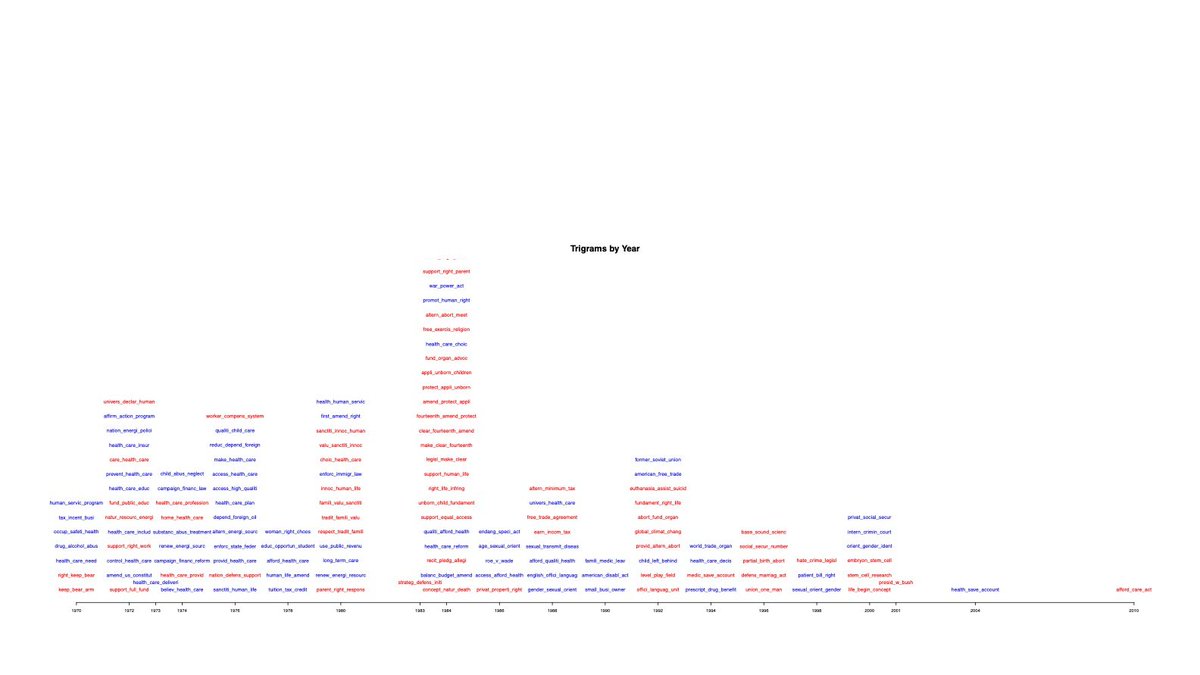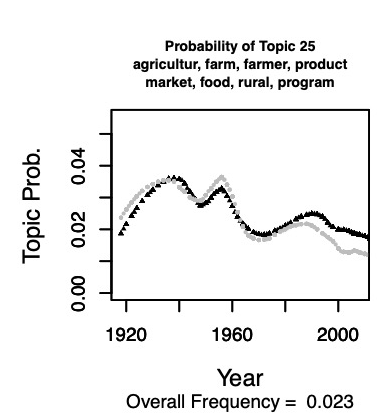The AZ GOP's censures raise questions about polarization, nationalization, state political parties.
Eric Schickler, David Azizi & I tackle those questions in a new paper analyzing 1,783 state party platforms 1918-2017:
https://papers.ssrn.com/sol3/papers.cfm?abstract_id=3772946
Here's a .
.
#polisciresearch https://twitter.com/smotus/status/1353389140671250432
Eric Schickler, David Azizi & I tackle those questions in a new paper analyzing 1,783 state party platforms 1918-2017:
https://papers.ssrn.com/sol3/papers.cfm?abstract_id=3772946
Here's a
 .
. #polisciresearch https://twitter.com/smotus/status/1353389140671250432
Here's a visualization of the GOP platforms we have by state & year, to give a flavor for the data set.
Our key questions: are polarization, nationalization evident in state party platforms? If so, when? Do these trends--well documented in federal politics--show up at the state level at roughly the same time?
tl;dr: Yes, they do show up, and at roughly the same time (1990s).
tl;dr: Yes, they do show up, and at roughly the same time (1990s).
One part of our analysis involved manually annotating trigrams, or three-word phrases.
Here's one example of such a trigram--"right_keep_bear," language related to gun rights. The phrase has become increasingly common; unsurprisingly it's heavily GOP in usage.
Here's one example of such a trigram--"right_keep_bear," language related to gun rights. The phrase has become increasingly common; unsurprisingly it's heavily GOP in usage.
Nationalization might be associated with rising attention to social/cultural issues, which are potentially resonant nationwide. And to be sure, social/cultural issues have been on the rise, driven more by the GOP.
That said, economic issues don't show a sharp decline--so nationalization doesn't just mean an abandonment of economic issues.
Social issues are rising to join ec. issues, not replacing them.
Social issues are rising to join ec. issues, not replacing them.
We can also identify novel trigrams by year.
To an important extent, new trigrams appear first at the state level, suggesting that the agenda isn't purely driven by DC.
To an important extent, new trigrams appear first at the state level, suggesting that the agenda isn't purely driven by DC.
We also used an unsupervised topic model--LDA--to model topic usage over time.
The result: very coherent categories that let us track attention by issue over time.
Here is agriculture (gray=GOP; black=Dems), a classic regionalized issue.
The result: very coherent categories that let us track attention by issue over time.
Here is agriculture (gray=GOP; black=Dems), a classic regionalized issue.
There are various ways one can compute party polarization using the topics--but they all tell the same story.
Party polarization in state party platforms rose sharply in the 1990s. This tracks what Gentzkow and co-authors find studying Congressional rhetoric.
Party polarization in state party platforms rose sharply in the 1990s. This tracks what Gentzkow and co-authors find studying Congressional rhetoric.
That's instructive: whatever drives this variant of polarization isn't acting exclusively in Congress or federal politics.

 Read on Twitter
Read on Twitter